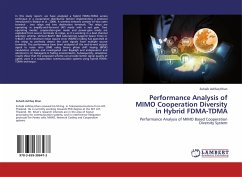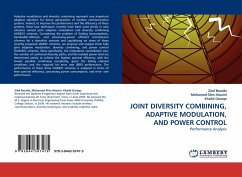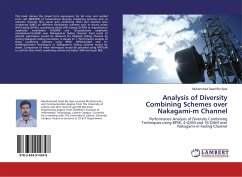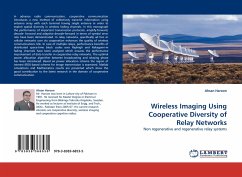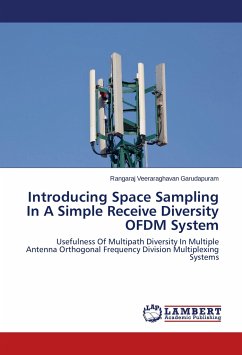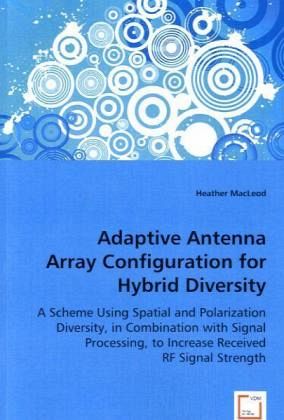
Adaptive Antenna Array Configuration for Hybrid Diversity
A Scheme Using Spatial and Polarization Diversity, inCombination with Signal Processing, to Increase Received RF Signal Strength
Versandkostenfrei!
Versandfertig in 6-10 Tagen
32,99 €
inkl. MwSt.

PAYBACK Punkte
16 °P sammeln!
Antenna diversity has long been one method of increasing gains in wireless systems. Such diversity provides a means to lessen the effects of signal fading in the RF channel, resulting in a stronger, more consistent signal at the receiver. The designproposed here uses two types of antenna diversity, spatial and polarization, in combination with processing of the incoming signal, to provide a consistently better received RF signal. This design is implemented using four microstrip patch antennas, processing hardware which utilizes logarithmic amplifiers to convert RF signal strength to a linear v...
Antenna diversity has long been one method of increasing gains in wireless systems. Such diversity provides a means to lessen the effects of signal fading in the RF channel, resulting in a stronger, more consistent signal at the receiver. The designproposed here uses two types of antenna diversity, spatial and polarization, in combination with processing of the incoming signal, to provide a consistently better received RF signal. This design is implemented using four microstrip patch antennas, processing hardware which utilizes logarithmic amplifiers to convert RF signal strength to a linear voltage, and selection software which has been designed using LabVIEW.The design is adaptive in that it periodically tests signal strength on a number of channels, and selects those which provide the best signal at that time. This work presents simulations to estimate the achievable system gains of the proposed scheme, the hardware and software design and implementation, and test results from the physical circuit.




